Using a Propane Heater in a Car [Worth the Risk?]
![Using a Propane Heater in a Car [Worth the Risk?]](/content/images/size/w1200/2023/10/Using-a-Propane-Heater-in-a-Car-1.jpeg)
If you sleep in a vehicle on a regular basis - or just go camping a few times per year - you’ve probably thought about using a propane heater in a car before.
There are only a limited amount of ways to stay warm in a vehicle during the colder months, and all of them have pros & cons. This includes propane heaters.
I’m going to lay out all of the options including the good, bad & ugly, so that you’re well-informed and can be best prepared once the weather starts getting frigid.
Let’s dive in!
Key Takeaways: While using a propane heater car in a car is fairly common among vehicle dwellers and camping enthusiasts, it is a highly risky practice that presents many dangers. There are other, safer methods for staying warm in a car.
Can You Use a Propane Heater in a Car?
Propane heaters are meant to be used in areas with no other heating sources; gas/electric furnaces & boilers, electrical space heaters, etc. This includes usage both outdoors and indoors. There are actually many homes that are heated via propane.
However, while many nomads do choose to use propane heaters in their vehicles, these devices really aren’t meant for areas that compact. There are lots of potential hazards when using propane in small, enclosed spaces, and in my opinion, these risks greatly outweigh the benefit of keeping warm.
Portable Car Heating Solutions (Pros & Cons Rated)
Propane Heaters:
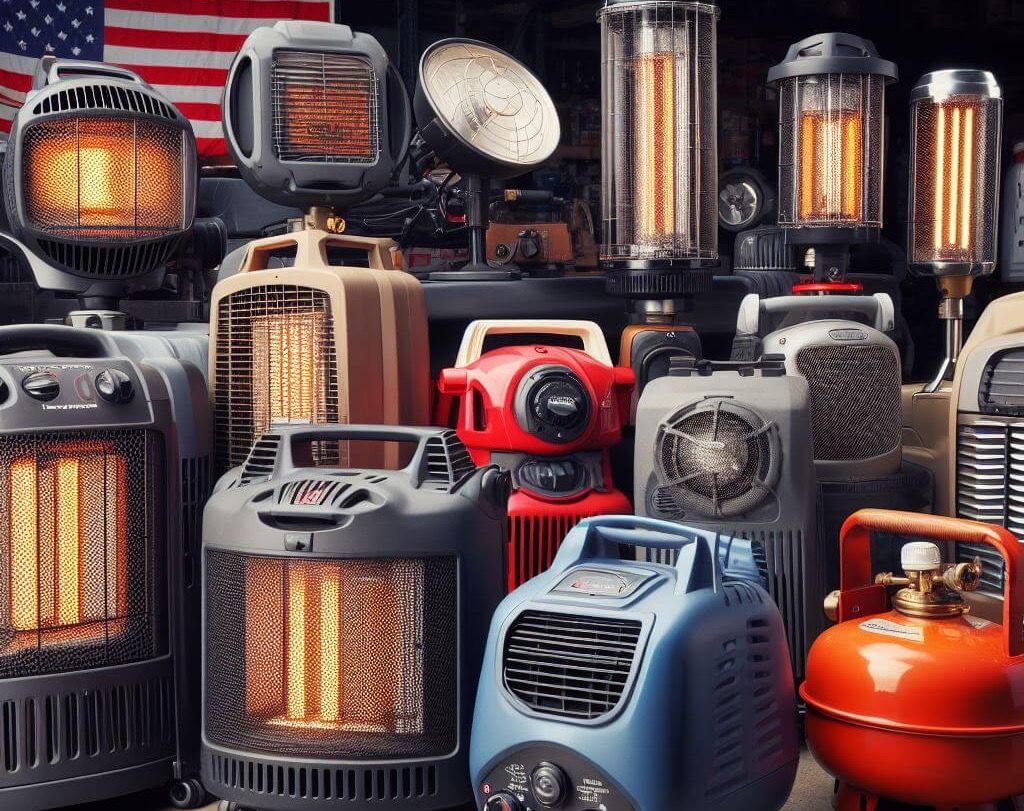
Portable propane heaters are pretty popular with the outdoors crowd, and come in a variety of styles and brands. Mr. Heater Little Buddy heaters are probably the most well-known, but there are countless others available online and in brick & mortar stores.
Regardless of brand, these units all operate the same way - by running off of propane that comes in small (usually 1lb.) canisters. BTU’s typically run from 4,000 to 9,000 in terms of heat output.
Pros:
-
These units (even the tiny ones) provide high heat output and warmth
-
Easy to use
-
Portability - can use in a variety of places
-
Are very affordable
Cons:
-
Extremely risky to use in a car due to CO2 poisoning and fire hazard
-
Purchasing propane canisters is expensive if bought regularly
-
Can sometimes be difficult to find the 1lb. propane canisters in stores
-
Even the smaller heaters tend to be bulky, and will be a chore to store
Verdict:
I do not recommend that anyone use a propane heater in a car or similarly sized vehicle, as it is much too risky.
While there are nomads and campers out there who feel otherwise - and that is their right - chancing injury or your life just to keep warm isn’t wise.
Propane heaters get VERY hot. If the unit is placed too close to something flammable, or manages to tip over, a fire can be started in a nanosecond. Dealing with this inside of a vehicle could be a disaster, especially if you are sleeping at the time.
On top of this, the potential of CO2 (carbon monoxide) poisoning is another concern. Others might argue that cracking a window will keep you safe, along with using a CO2 alarm, but these are only protective measures. Accidents happen all the time and things go wrong.
Last but not least is the cost. A 1lb. propane canister will last about 5-6 hours. This is one night. At roughly $5 per canister (at least), you’d be spending $140 per month on these in the winter. Storing them would also be a nightmare.
Speaking of the devil, as I was prepping this article there was a camper explosion about 90 minutes north of me that was featured on the local news, due to a propane tank. Common? Not necessarily, but these things do happen, which is why the risks of using a propane heater in a car isn’t worth it to me.
Full story, below…

Small Electric Car Camping Heaters:
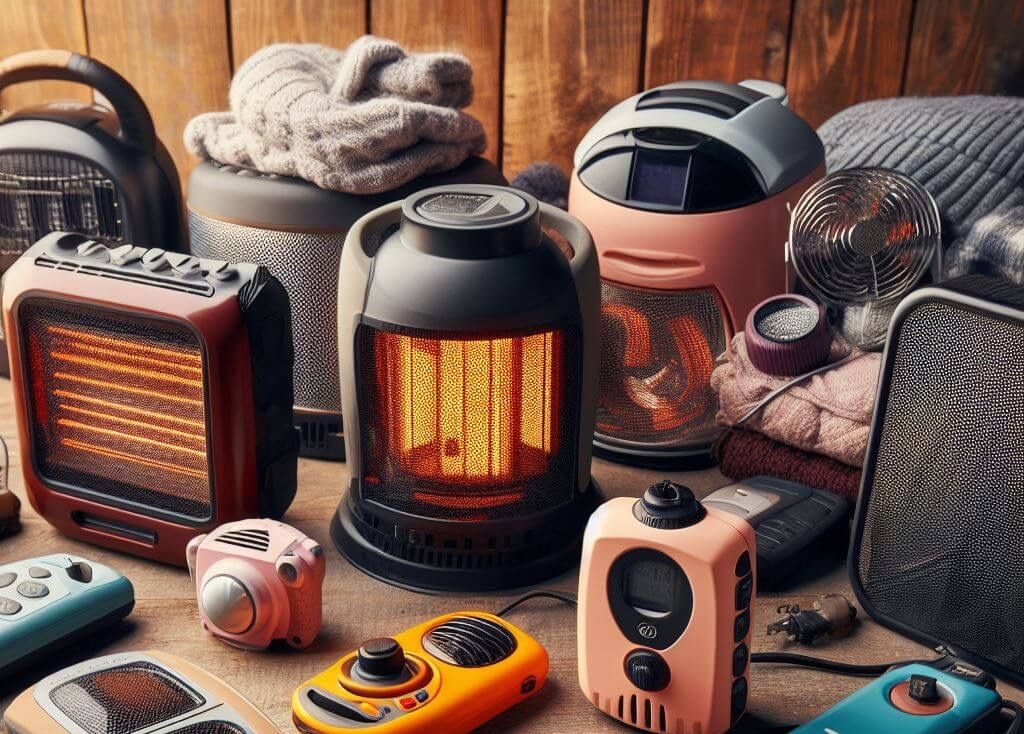
Another option to heat a car during the colder months is by using a small electric car camping heater.
There are a bunch of these on the market, and they’re actually much safer than using propane in a vehicle, but the big catch is this…
They simply require too much electrical energy to run for long periods of time without a large power source.
Unless you’ll be staying at a campground or other place that has electrical hookups, being able to keep a heater running in your car for extended periods - while somewhat possible - isn’t really practical or convenient. This is true even for very low-watt devices.
Here’s a real world example to illustrate my point, as to the difficulties of powering an electrical space heater in a car…
A nomad buddy of mine owns the small space heater pictured below. It’s made by a company called Lasko, and at just 200 watts, it is one of the few lowest wattage electric heaters that actually works well.
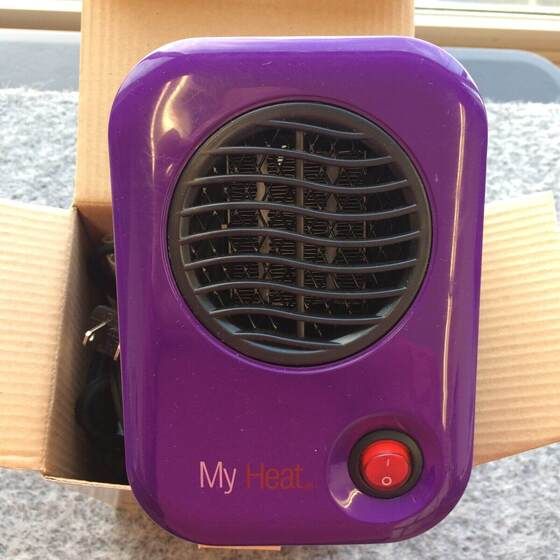
Even for being so tiny and low-wattage, he needs a WHOPPING 1,000Wh power station to run the heater for just 5 hours per night! (1,000Wh ÷ 200 watts = 5).
Worse yet, if he uses the heater for the full 5 hours at night to stay warm, this means his power station will basically be dead the next morning, and must be recharged.
If he recharges the unit via the 12V port in his car, it could take 7-8 hours. If he can duck into a Starbucks or similar place and plug it into a wall outlet, it takes 4-5 hours. This is a royal pain in the ass to do every day! And remember…
This is only a tiny 200 watt space heater 🥴
Pros:
-
Tiny & Portable
-
Much safer than propane heaters
-
Inexpensive
-
Can warm up a very tiny area adequately
-
Only 200 watts - one of the lowest-wattage units you can buy
-
Easy to store
-
Simple to use
Cons:
-
Will need a large, expensive power station to use this size heater, and it must be recharged daily
-
Doesn't provide the same heat output & warmth as propane heaters or larger electrical units
-
Most of these micro-sized heaters lack a settings control - only on & off operation
-
Only effective in very, very small areas
Verdict:
If you’re an avid outdoors person and go camping several times per year - especially during the colder months - a heater like this might be a good investment. You could run it off shore power at campgrounds, or invest in a portable power station like a Jackery, EcoFlow or Anker.
However, if you live in a car I wouldn’t advise this type of set-up. For starters, you’ll have to buy a pricey power station. Next, once you do, the heater can only be run for 5-6 hours per night. Finally, and most importantly, the power station will need recharging each morning during the winter. All of this is a major hassle.
12V Car Heaters:

I’m sure you’ve seen these devices advertised on Amazon, Facebook, TikTok, and other places. They claim to heat up your car by plugging into your vehicle’s 12V port. Sounds fantastic! But here’s the truth…
These do not work. Or, to be more precise…they don’t work anywhere nearly as well as described. In short, they’re mostly cheap, poorly made gimmicks that aren’t even worth the small prices they sell for.
Don’t believe me? Check out the reviews for these things online 🥸 Some people claim they’re partially useful - which might be true - BUT, they will only be good enough to maybe use as a window defroster or to warm your hands up…as long as the “heater” is about an inch away 🤣
No pros & cons needed. Stay away from these!
Safety Precautions with Propane in Vehicles
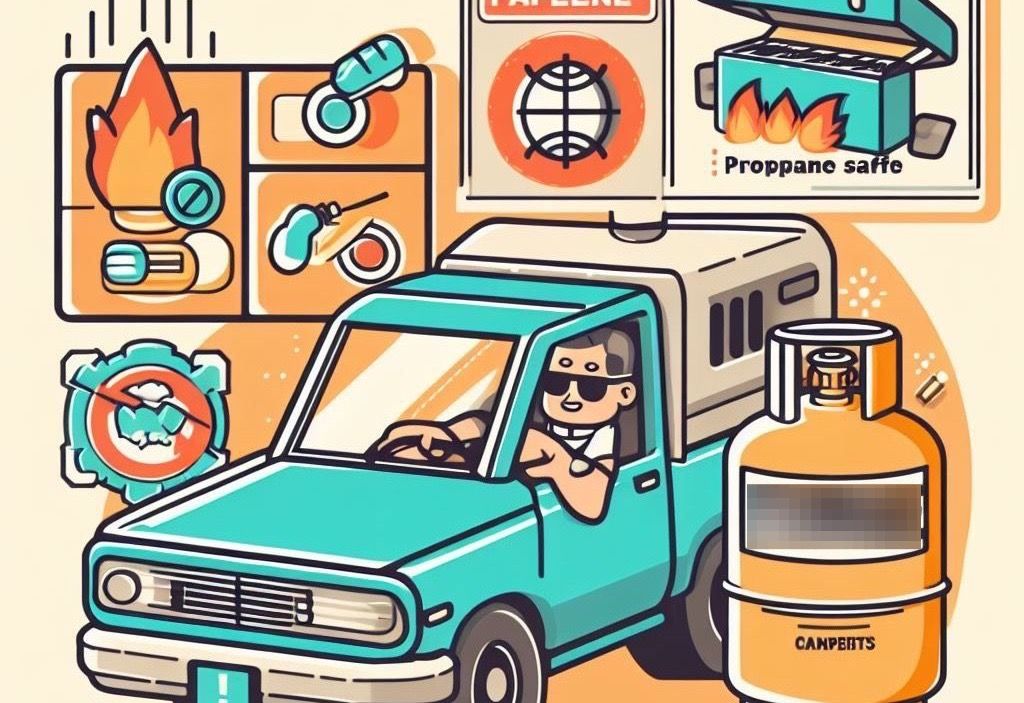
-
Always, always, ALWAYS crack at least one window to help prevent gas build-up while the heater is on
-
Buy a quality CO2 alarm/sensor, and make sure that it is on at all times when the heater is in use
-
Check the batteries every 6 months to ensure that they’re working properly
-
Make sure the heater is placed upon a sturdy, flat surface while in operation
-
Never, EVER leave the heater unattended while it is running
-
Do NOT place the heater within 6-8 inches of any flammable or combustable materials
-
Never use propane canisters that aren't compatible with your heater
Easiest Way to Stay Warm in a Cold Car
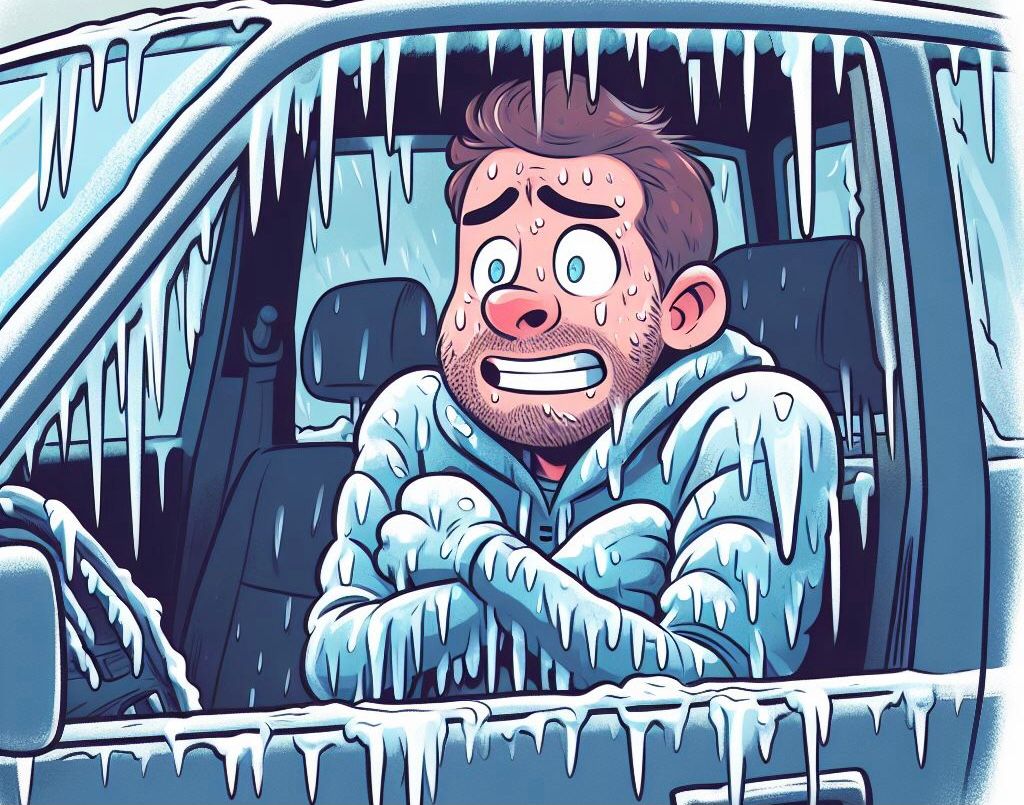
By far, the simplest, most effective way to stay warm in a car when the weather is cold is by doing this…
Run the car with the heater on.
Not exactly rocket science, right? Indeed. Just know that even this method comes with a few big cons.
If you’ll be doing this here & there on occasional camping trips, sleeping in your vehicle overnight for work every so often, etc., no worries at all. However…
If you live in a car full-time, doing this on an extended basis has several drawbacks:
-
You'll be burning fuel, which isn't cheap - especially if you have a larger vehicle
-
Repeatedly running an older vehicle all day & night adds wear & tear
-
Many places (particularly businesses) might prohibit idling
-
If you'll be stealth camping, leaving your car running is a dead giveaway that someone is inside the vehicle
Alternative Heating Solutions for Car Dwellers

Fortunately, there ARE other ways to stay warm in a cold vehicle without any of the cons from the methods above.
Final Thoughts
As you’ve learned, yes, you can use a propane heater in a car. But to do so comes with safety risks in addition to other hurdles.
Whether or not those risks are worth it is for YOU to decide.
At the end of the day, sleeping in a car (temporarily or full-time) is going to mean making some sacrifices if you wish to remain as warm as you would in a regular home.
There are many nomads who “chase the weather” throughout the year. This is a brilliant strategy, as it can help avoid bad/cold weather. Unfortunately though, not all of us have the luxury of doing this. We have to take whatever we get, and sometimes turn lemons into lemonade.
Use the knowledge I’ve shared to find a solution that works best for your situation.
LIVE WISELY, LIVE WELL!


